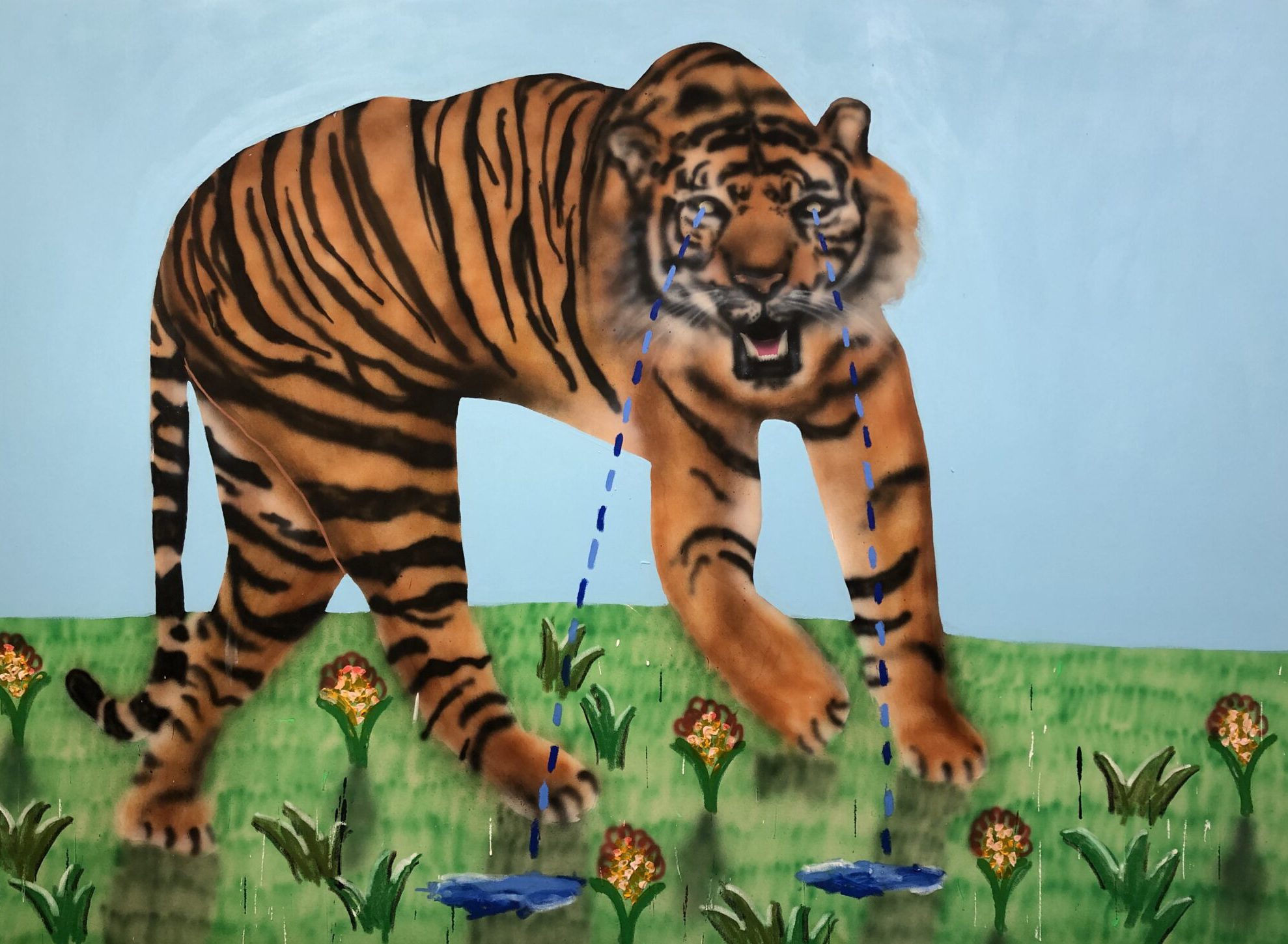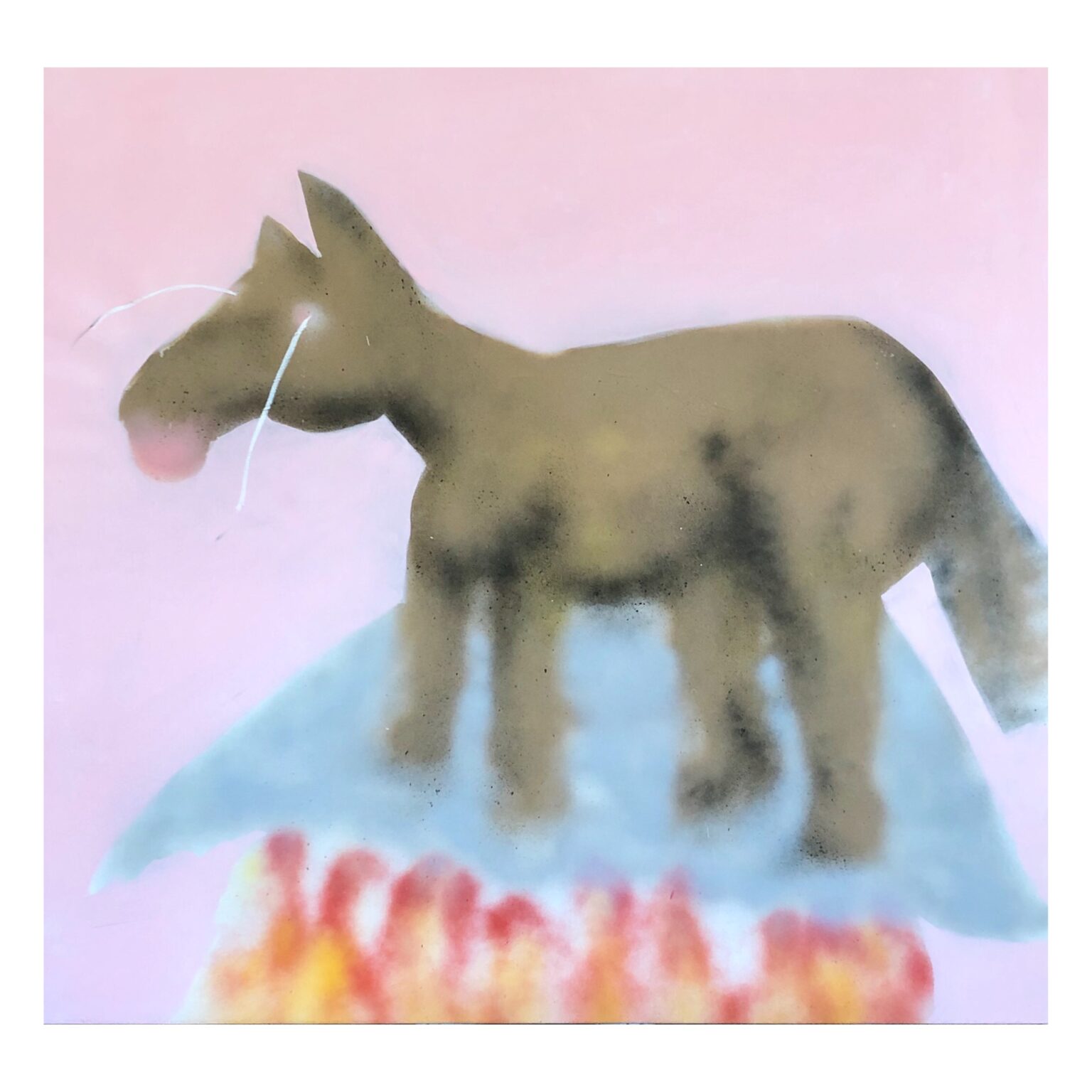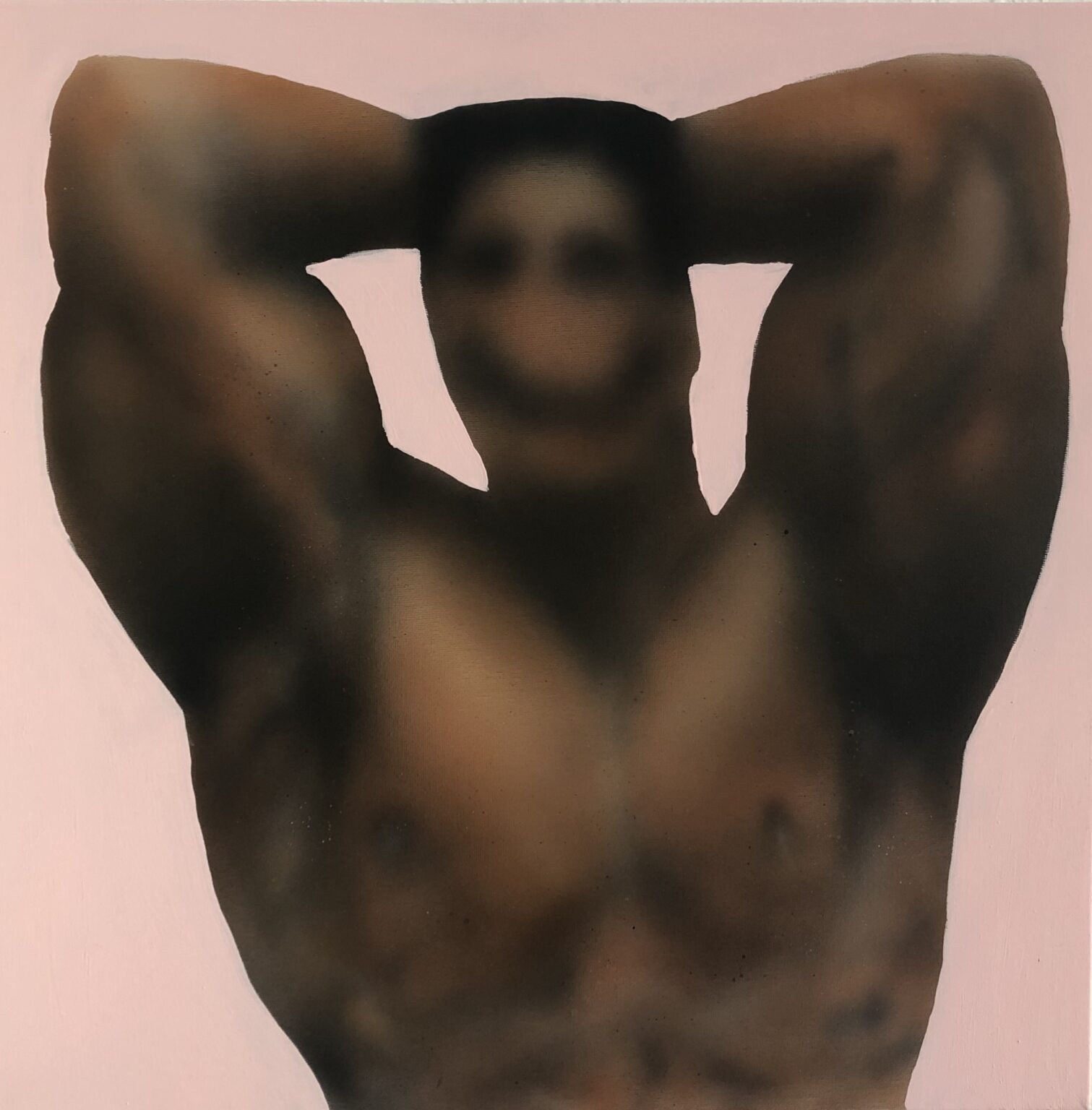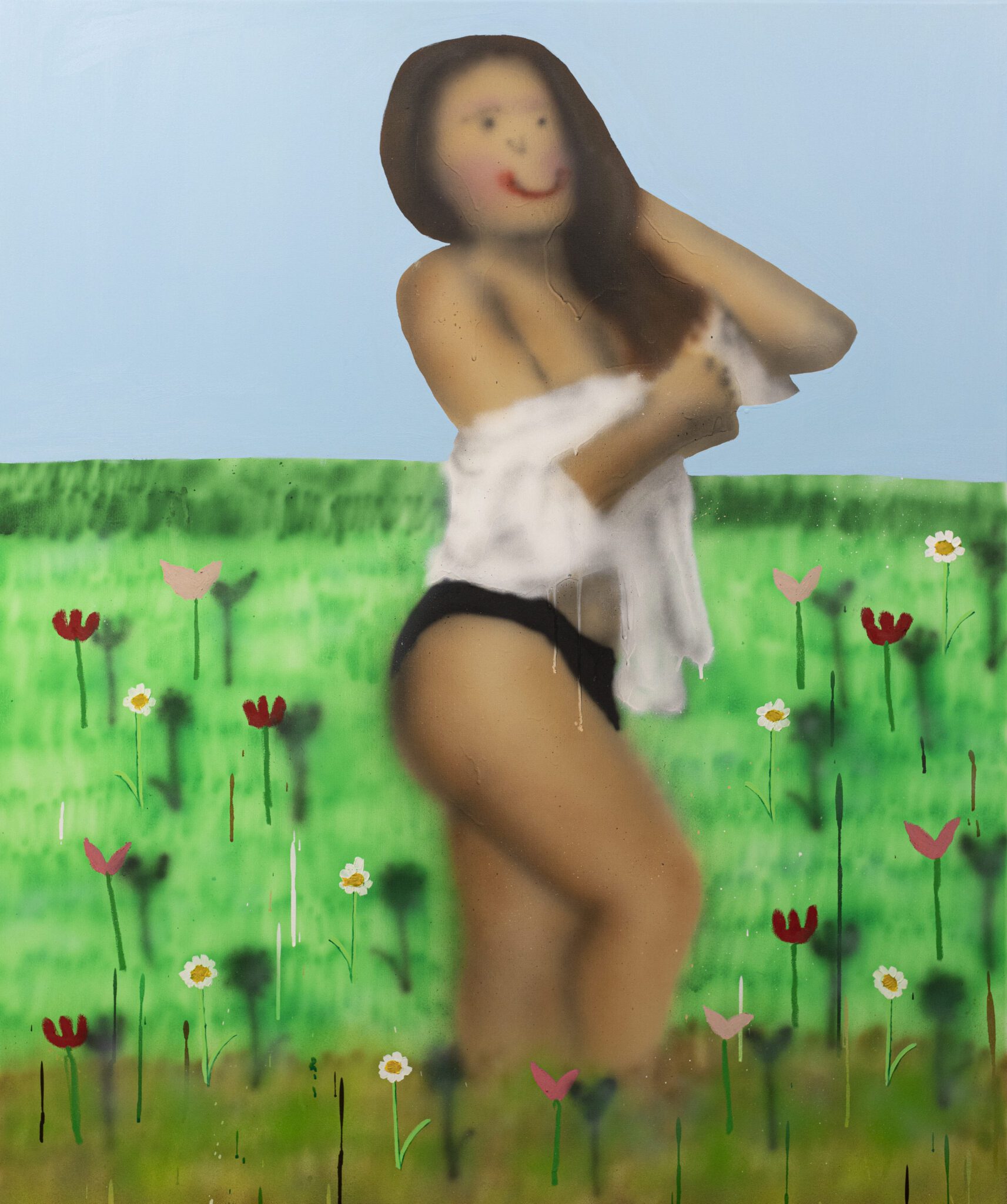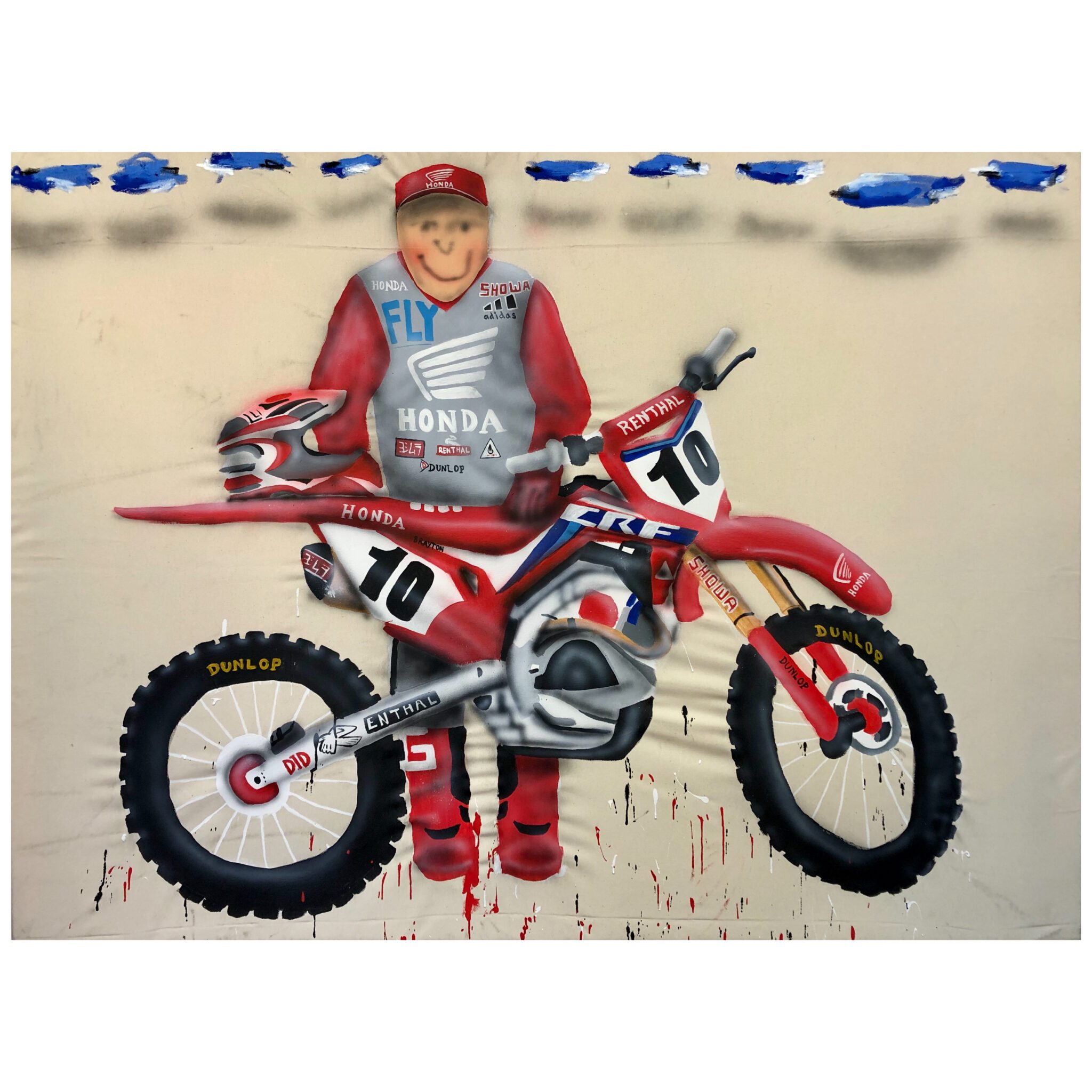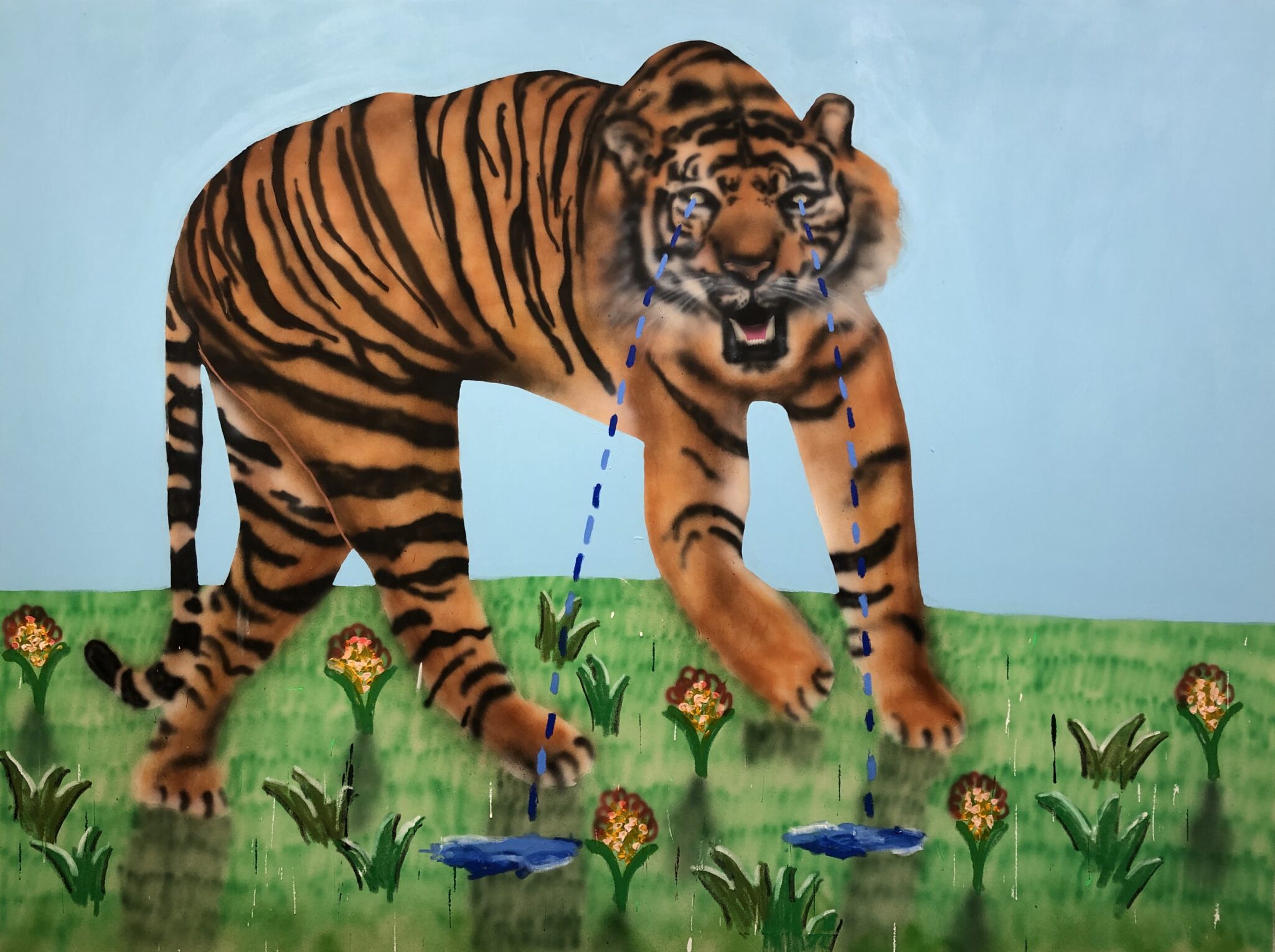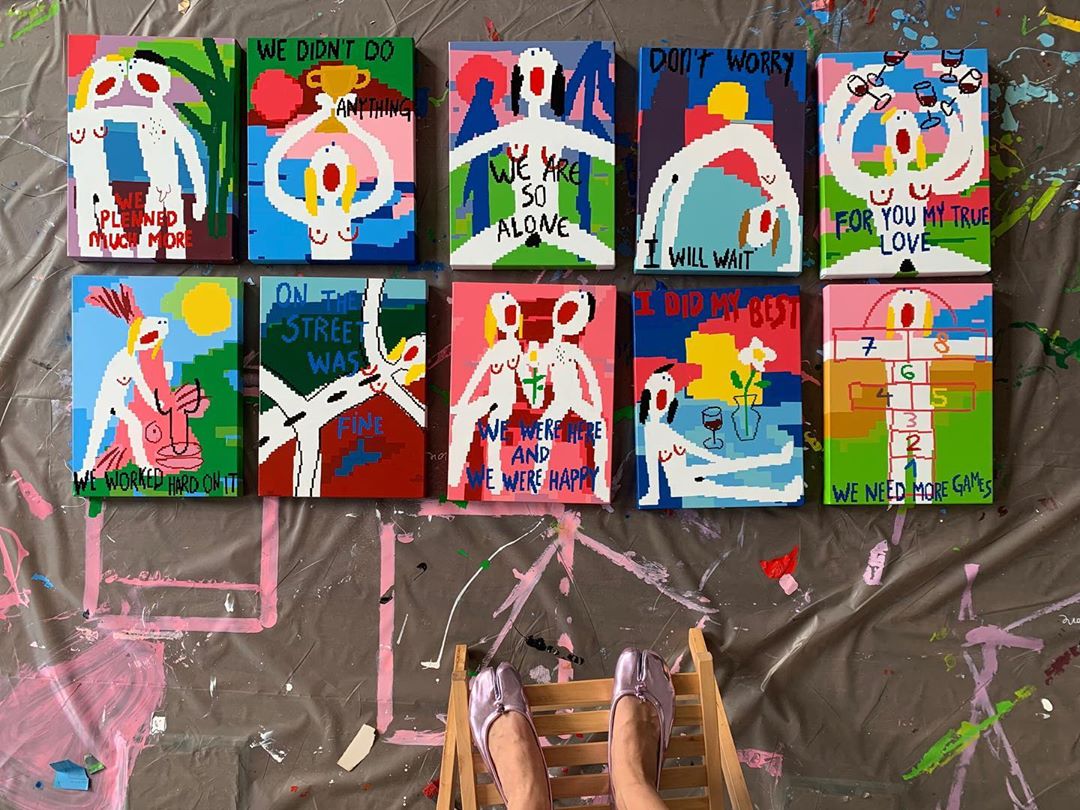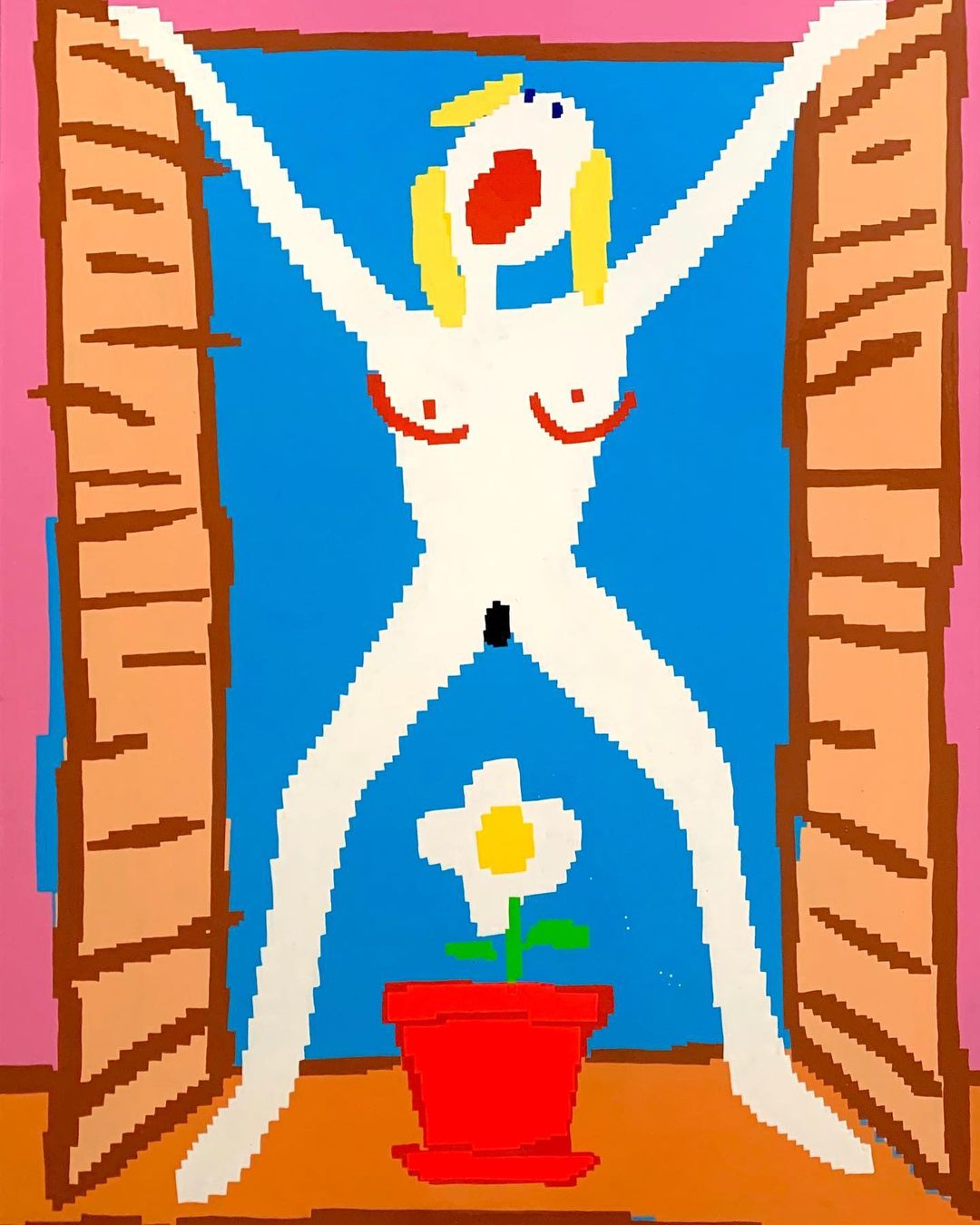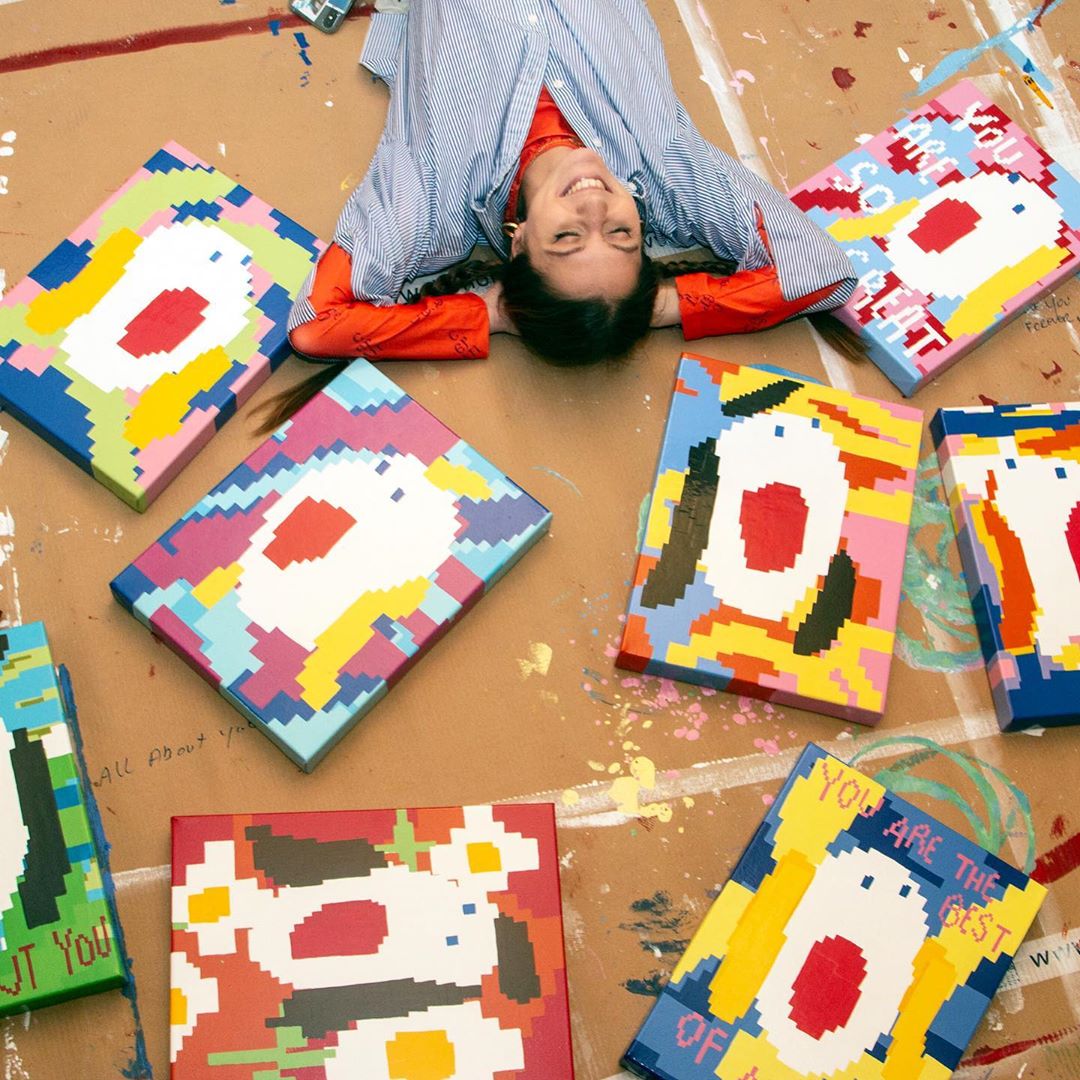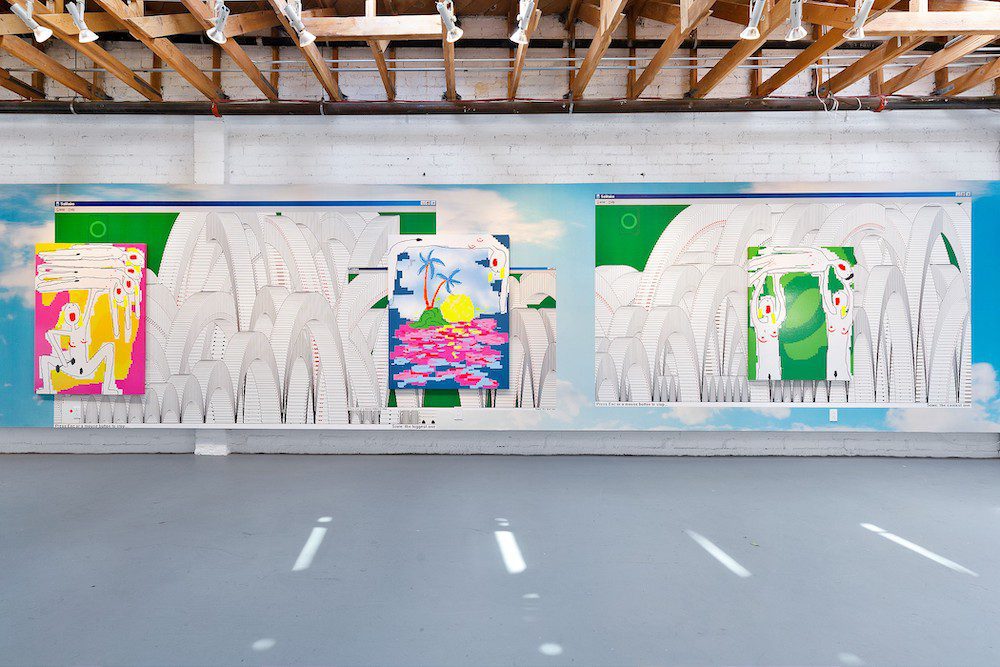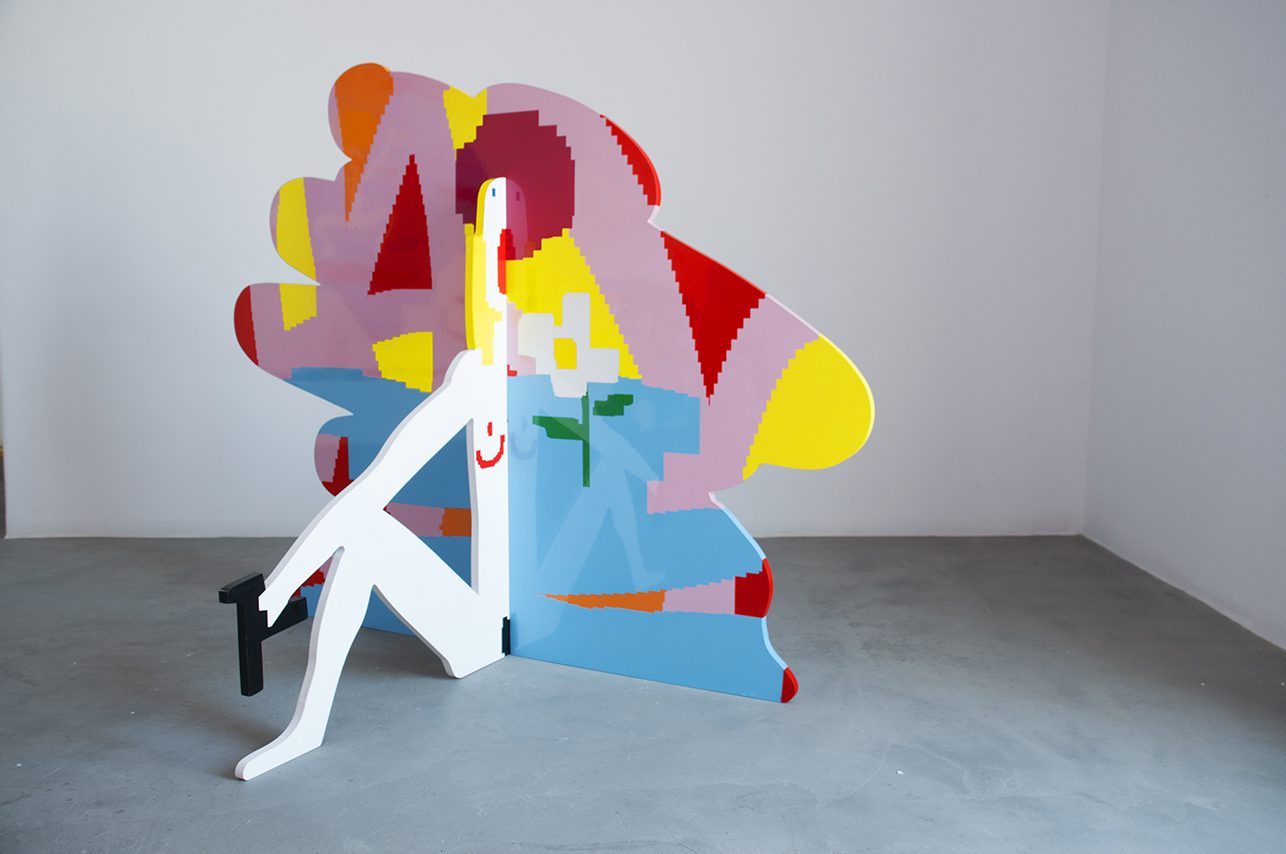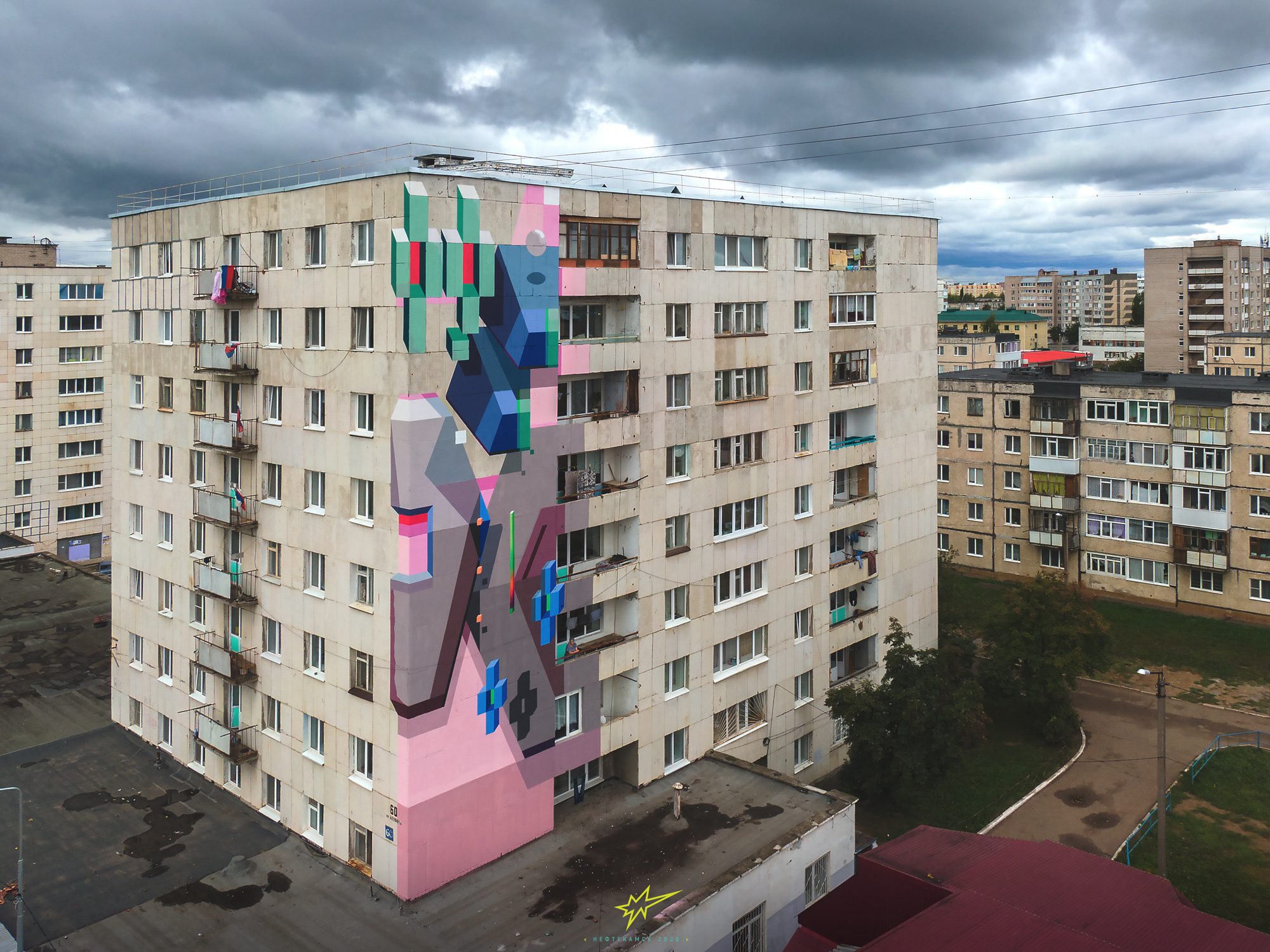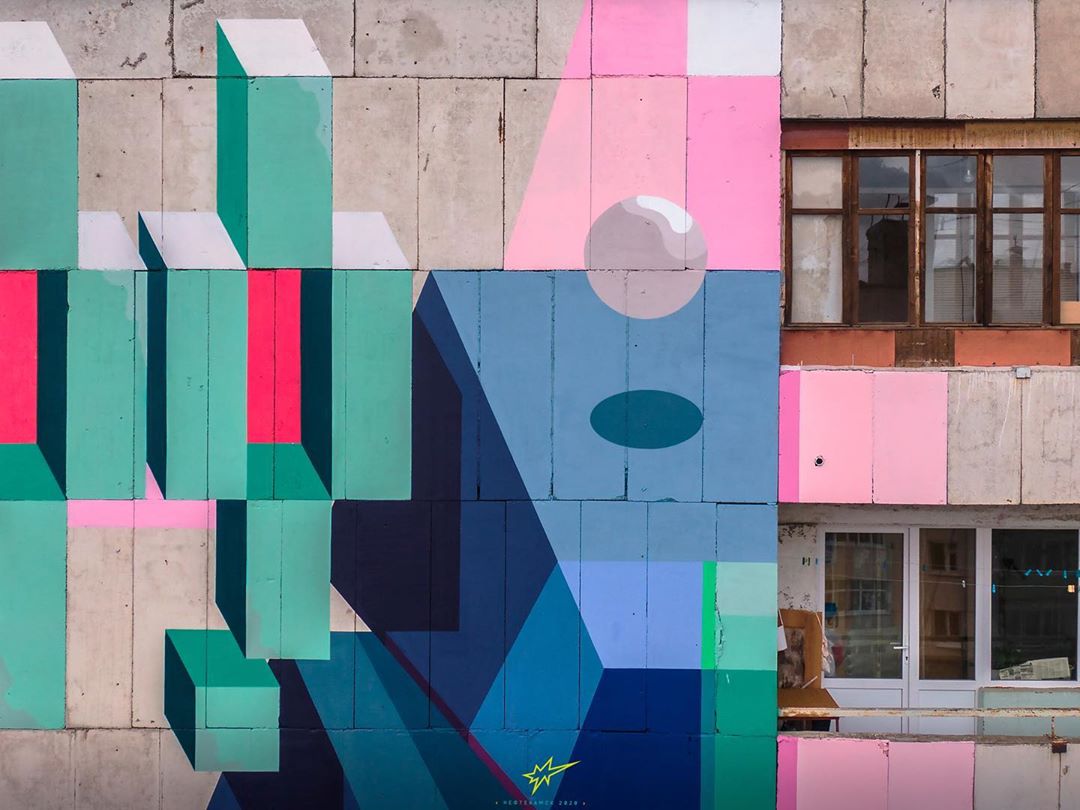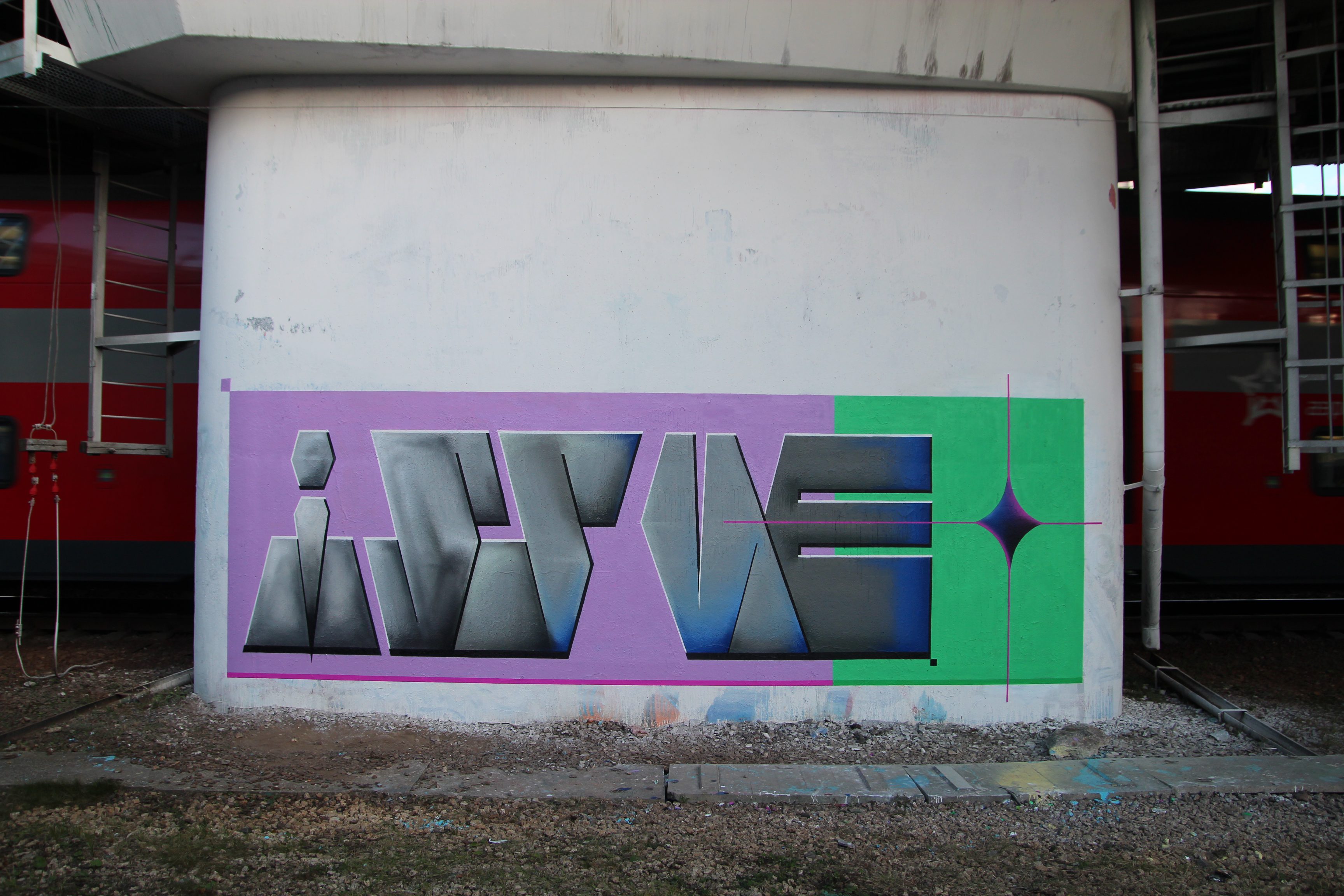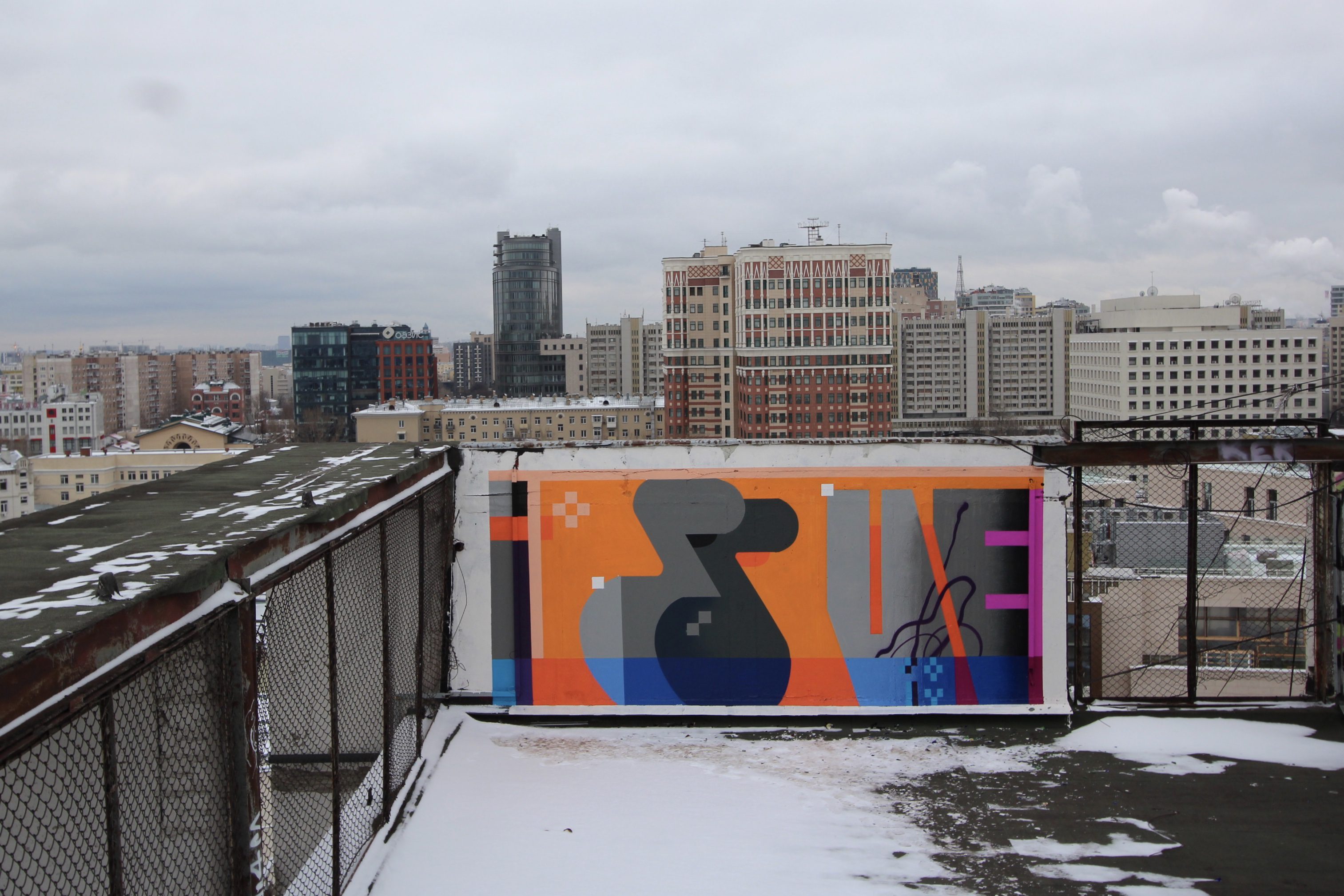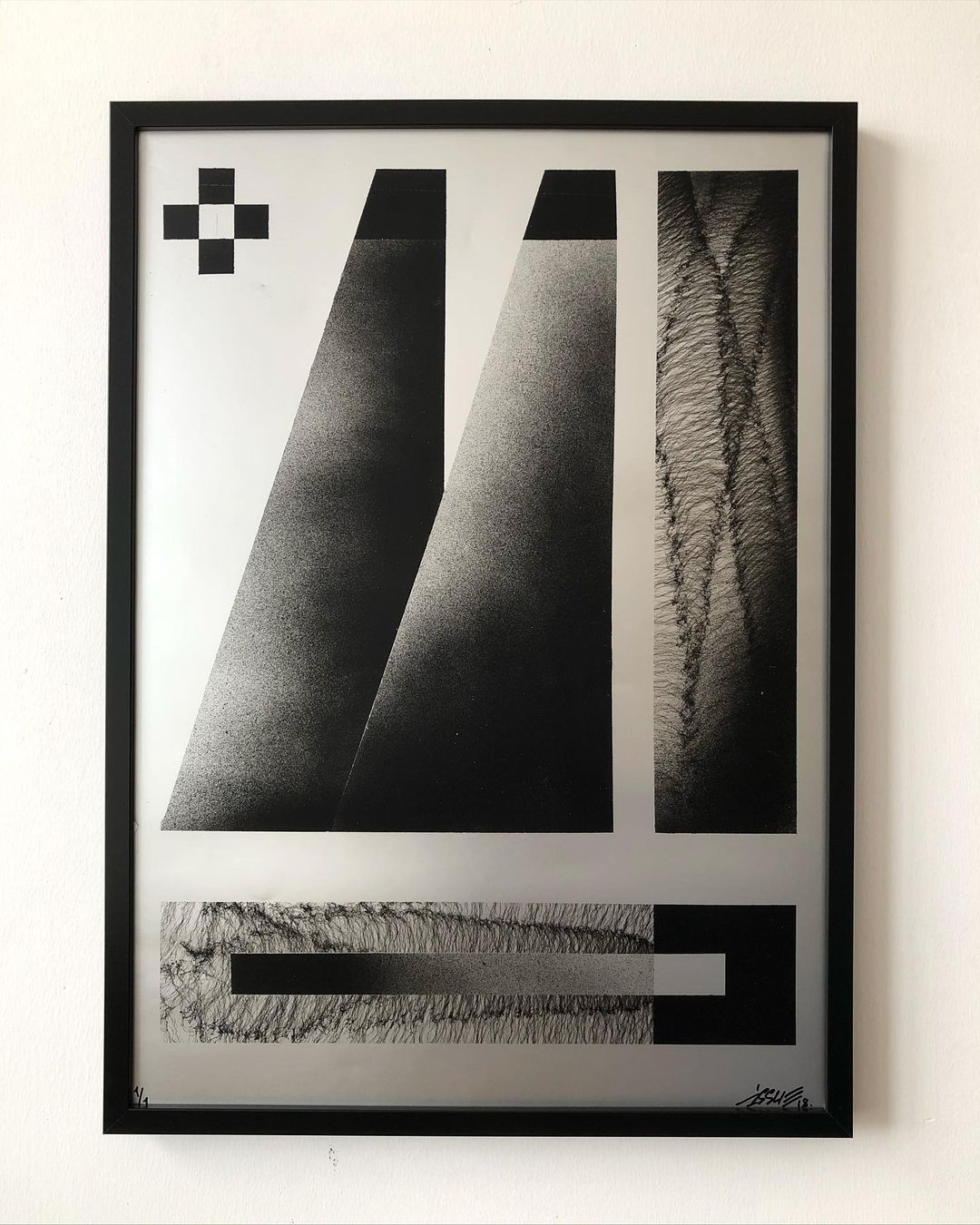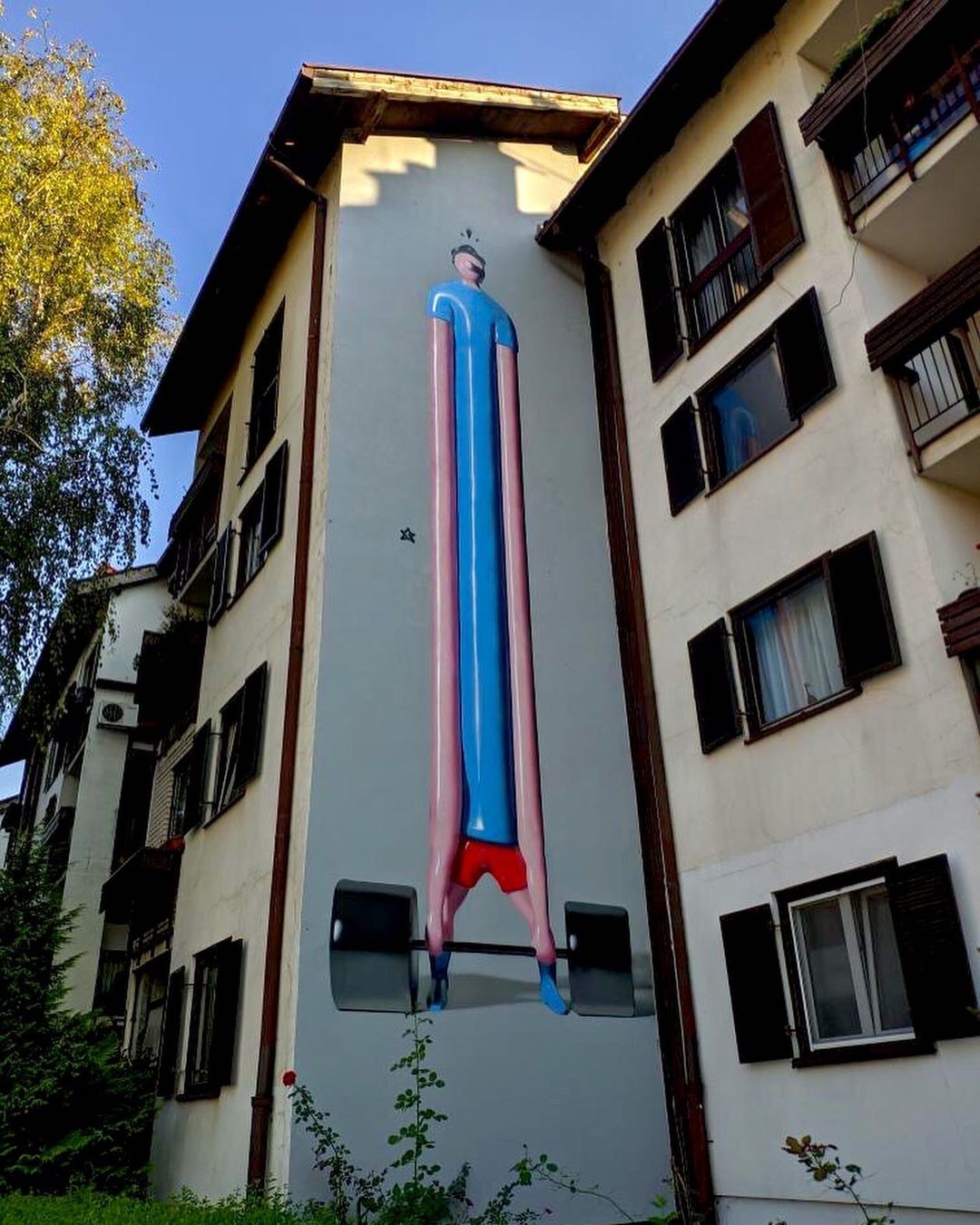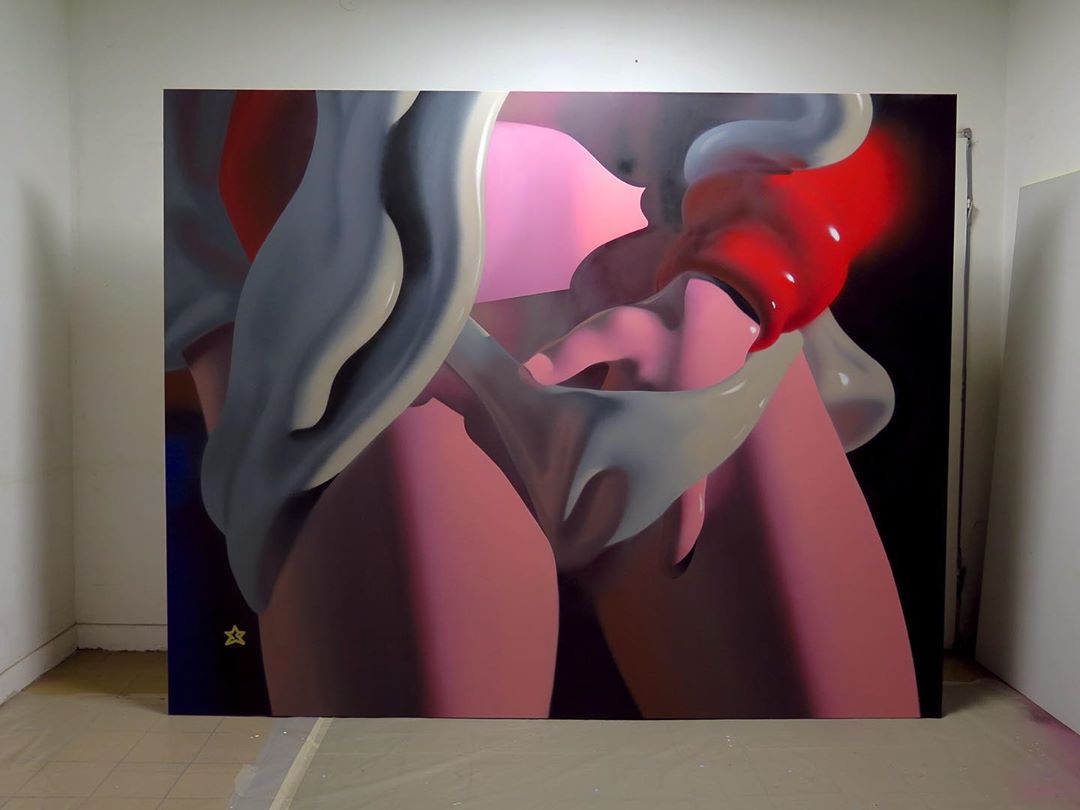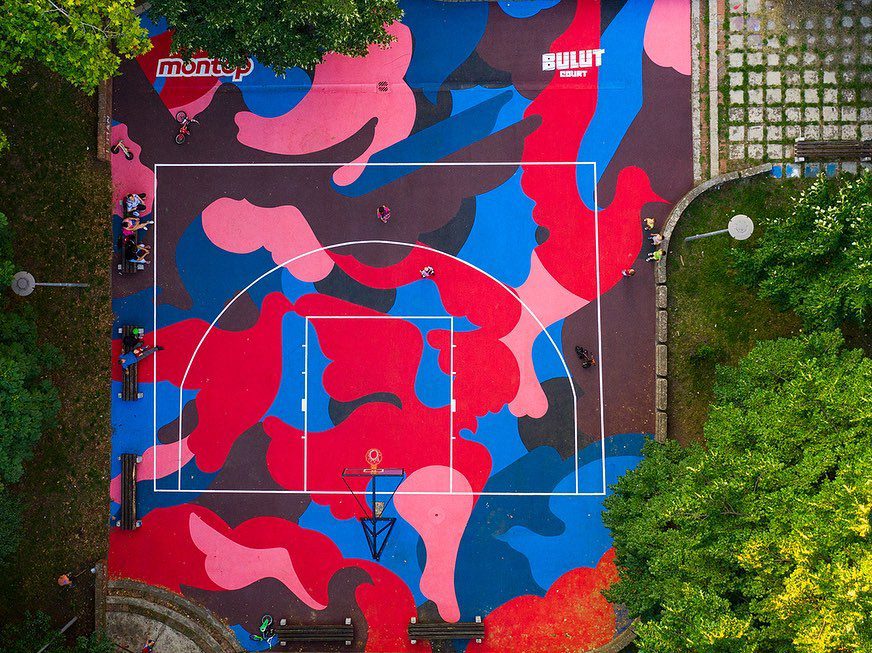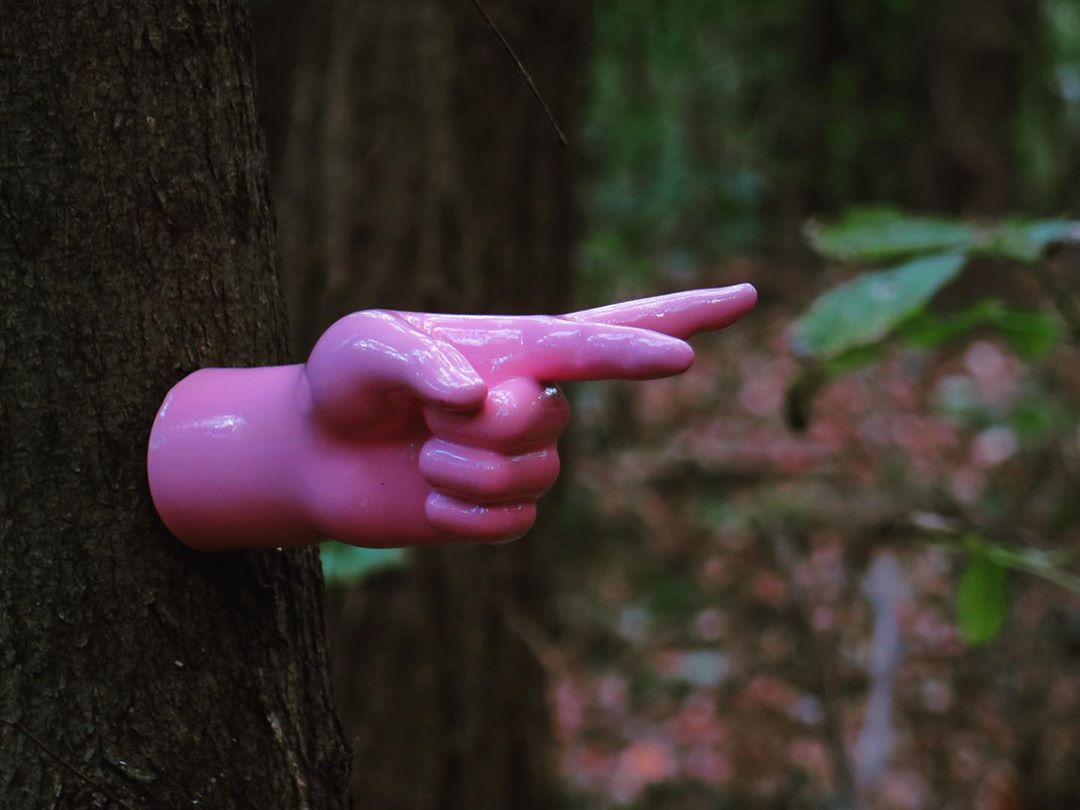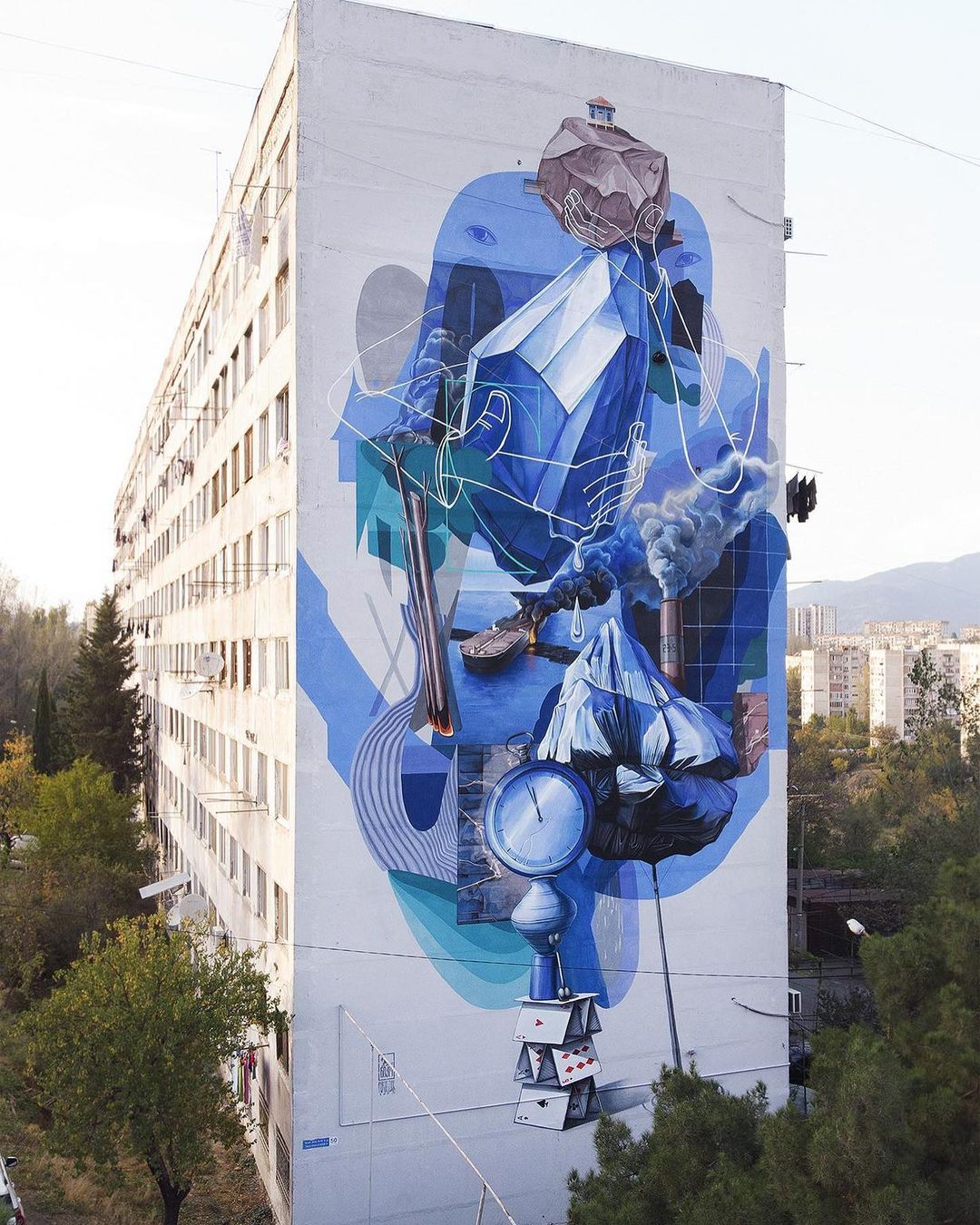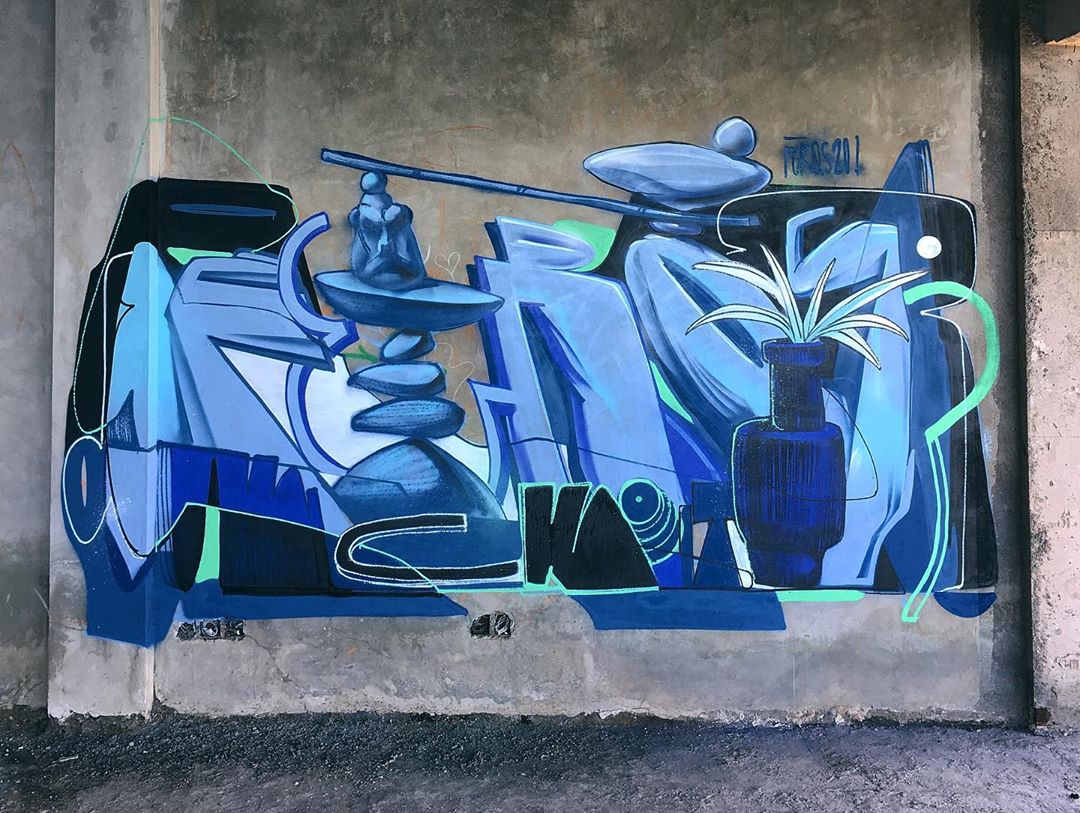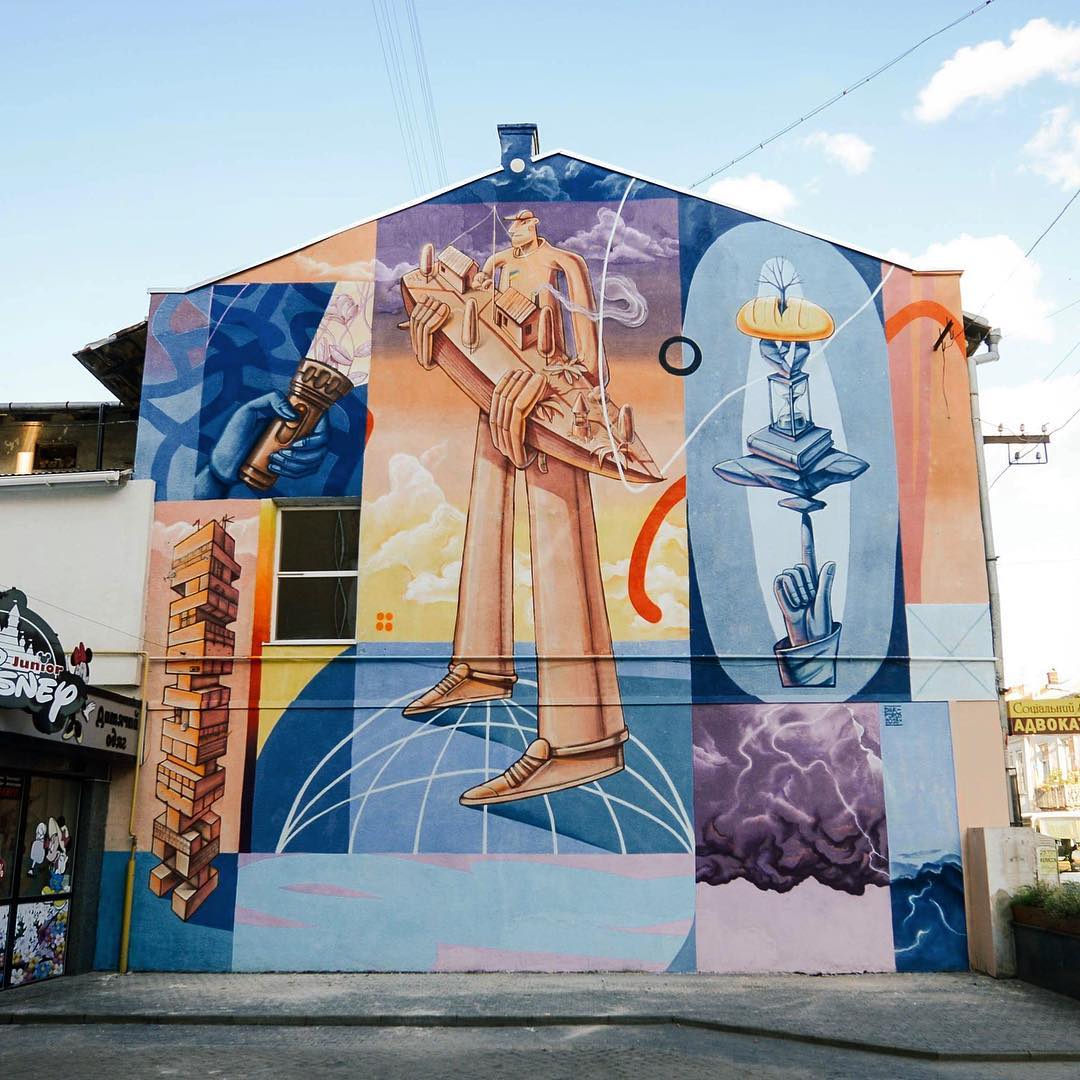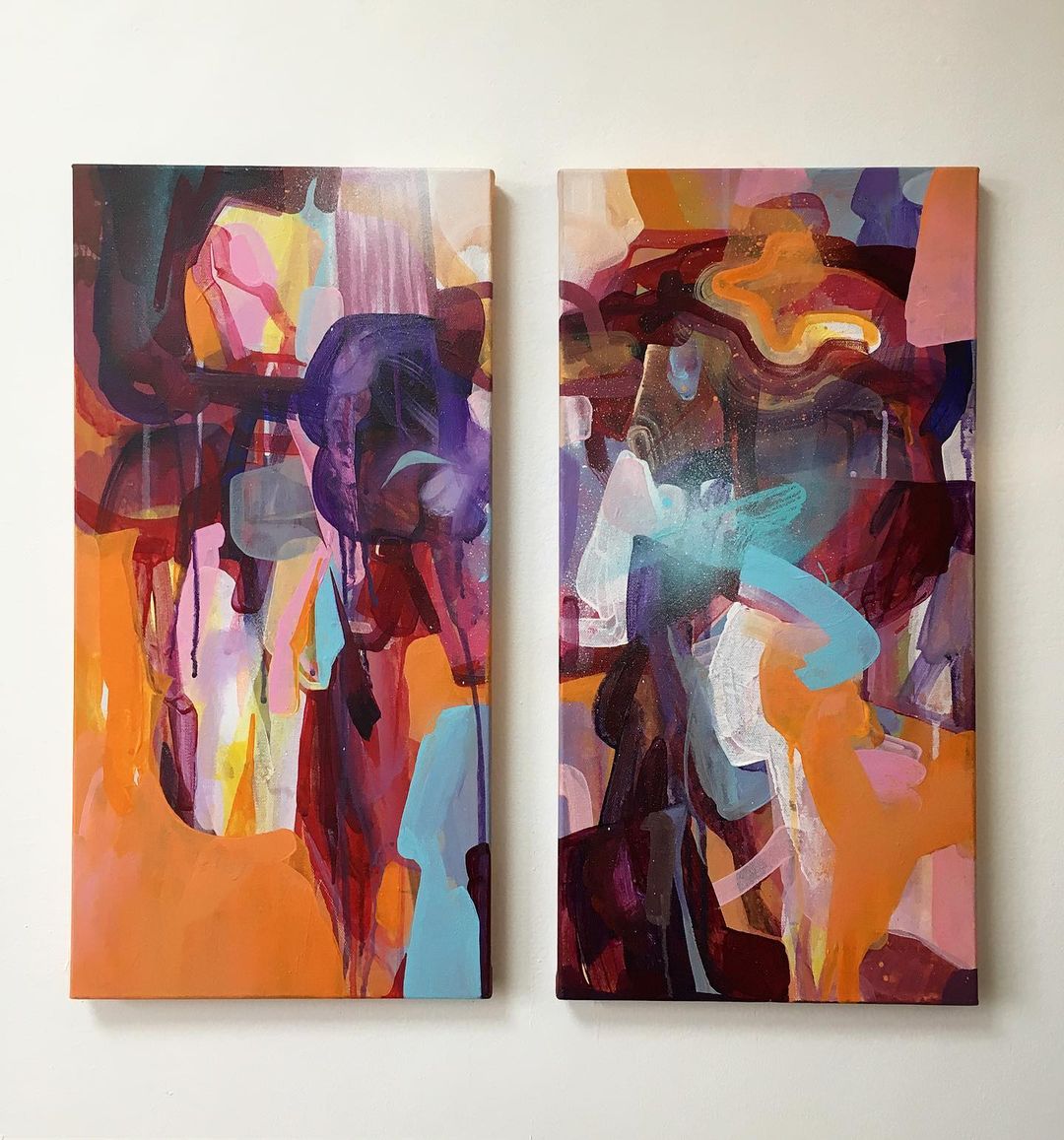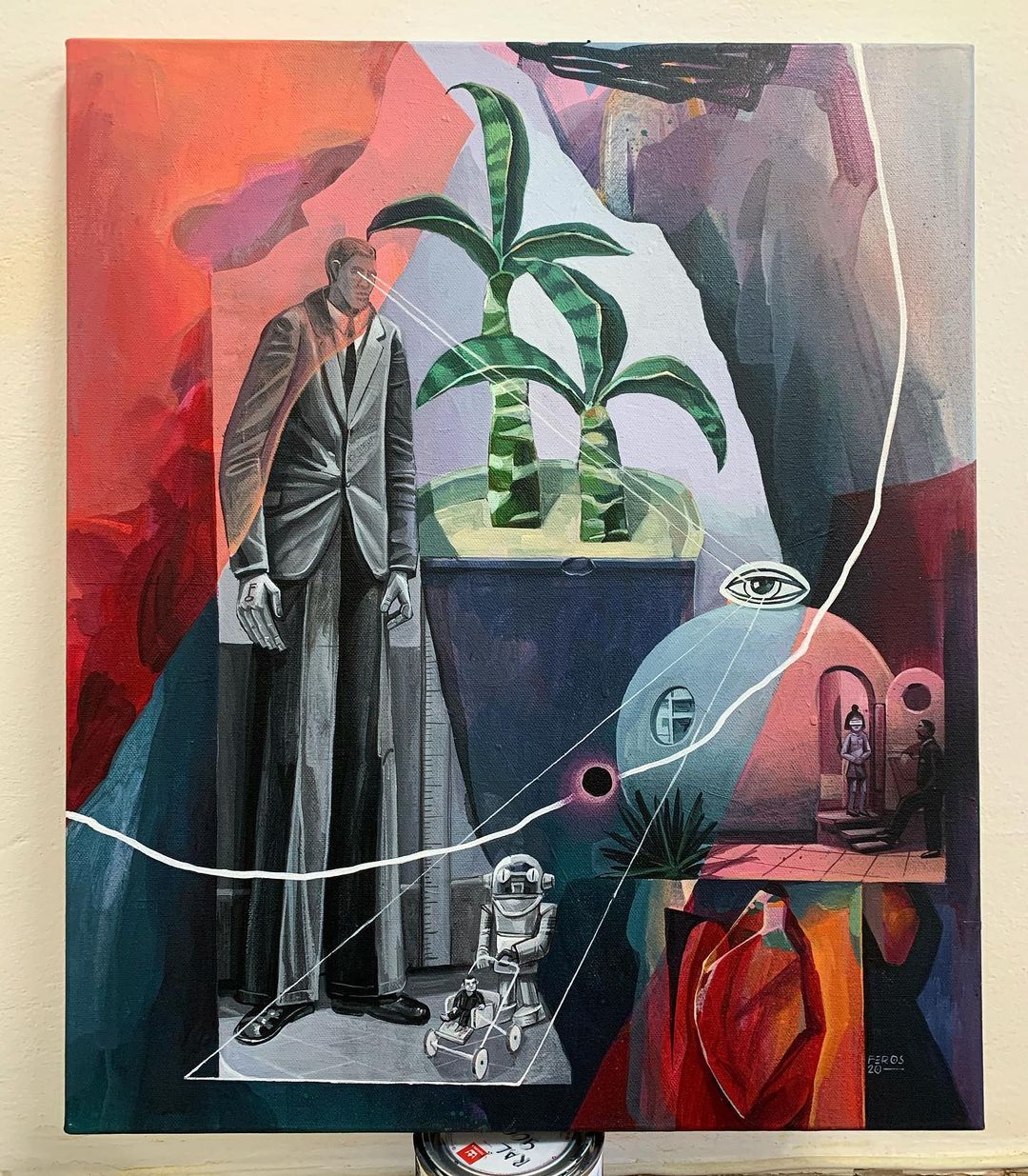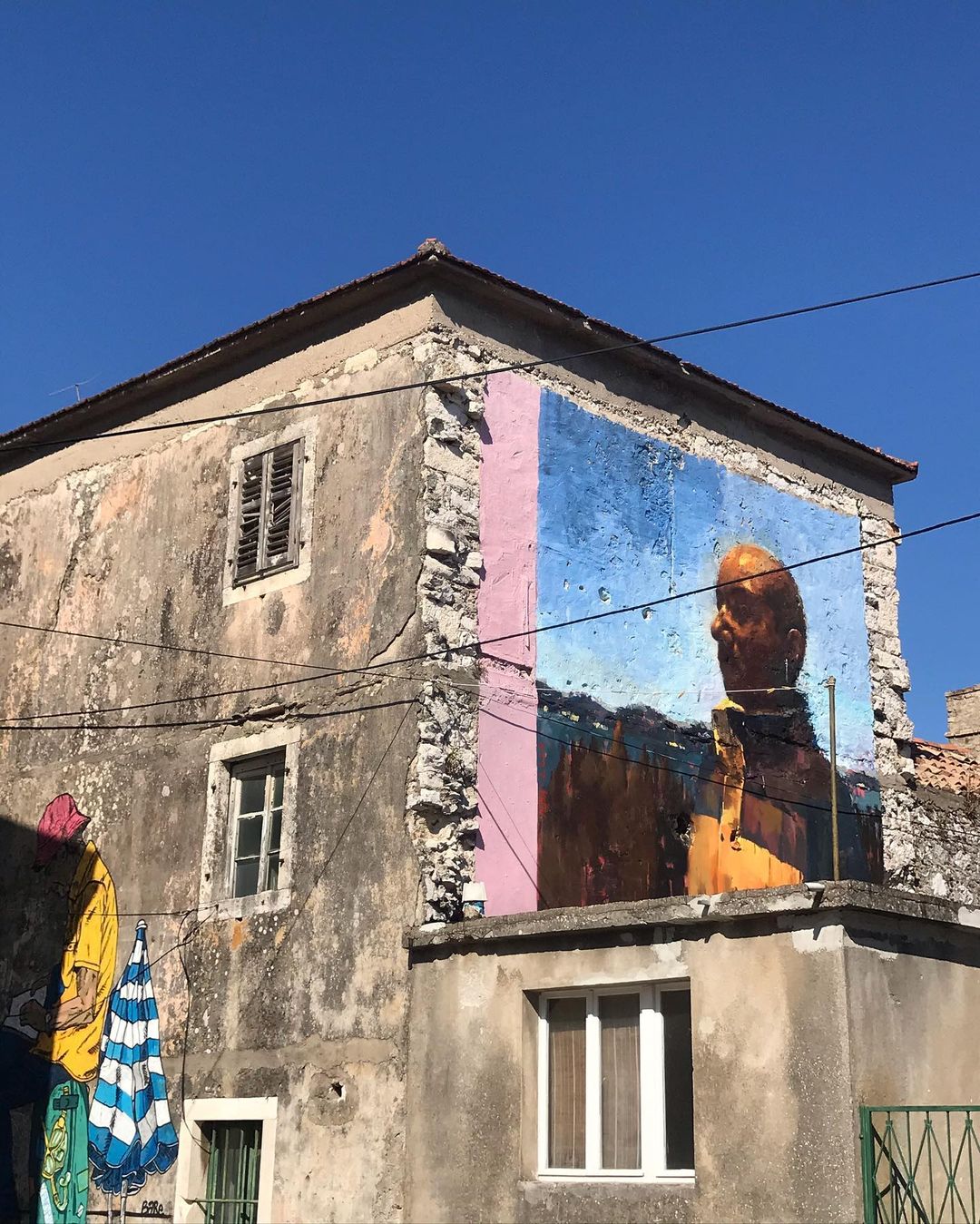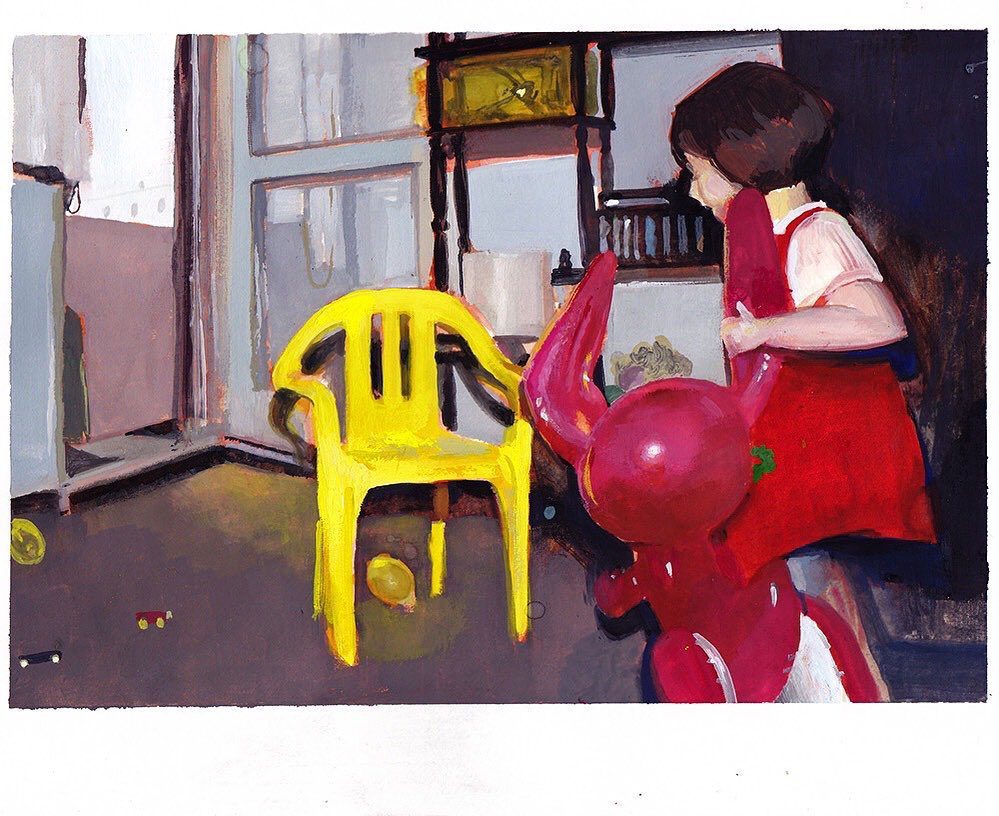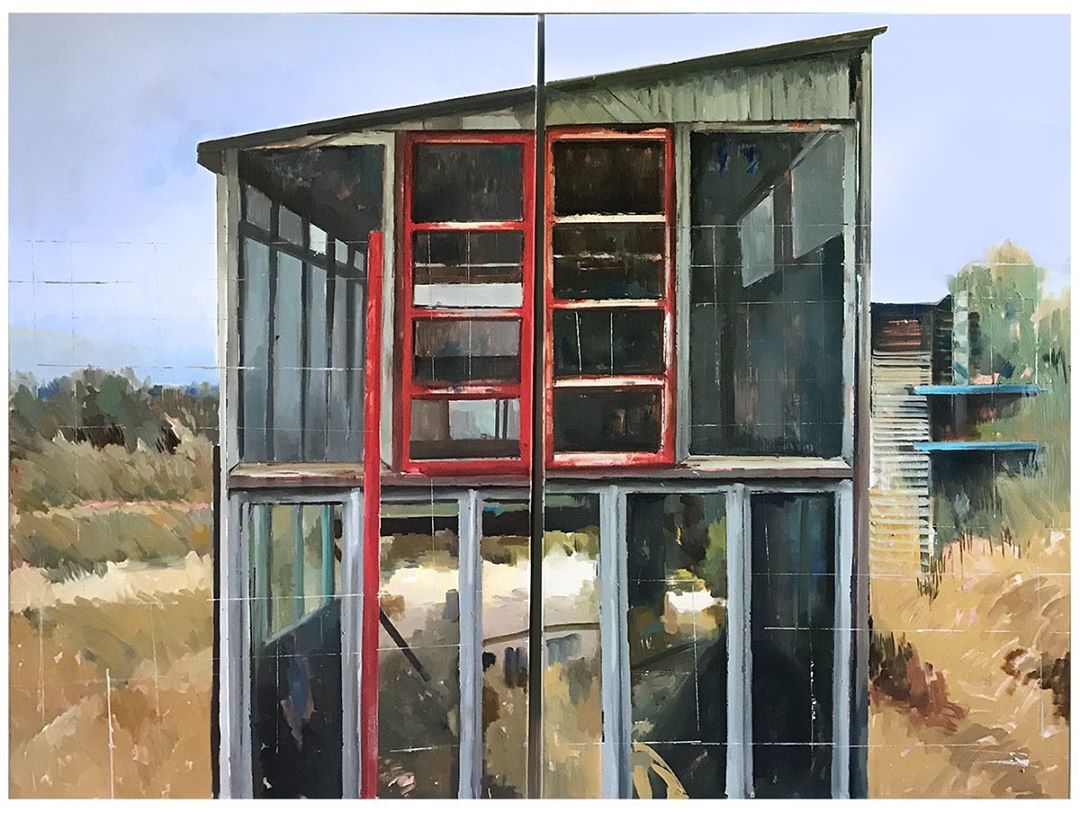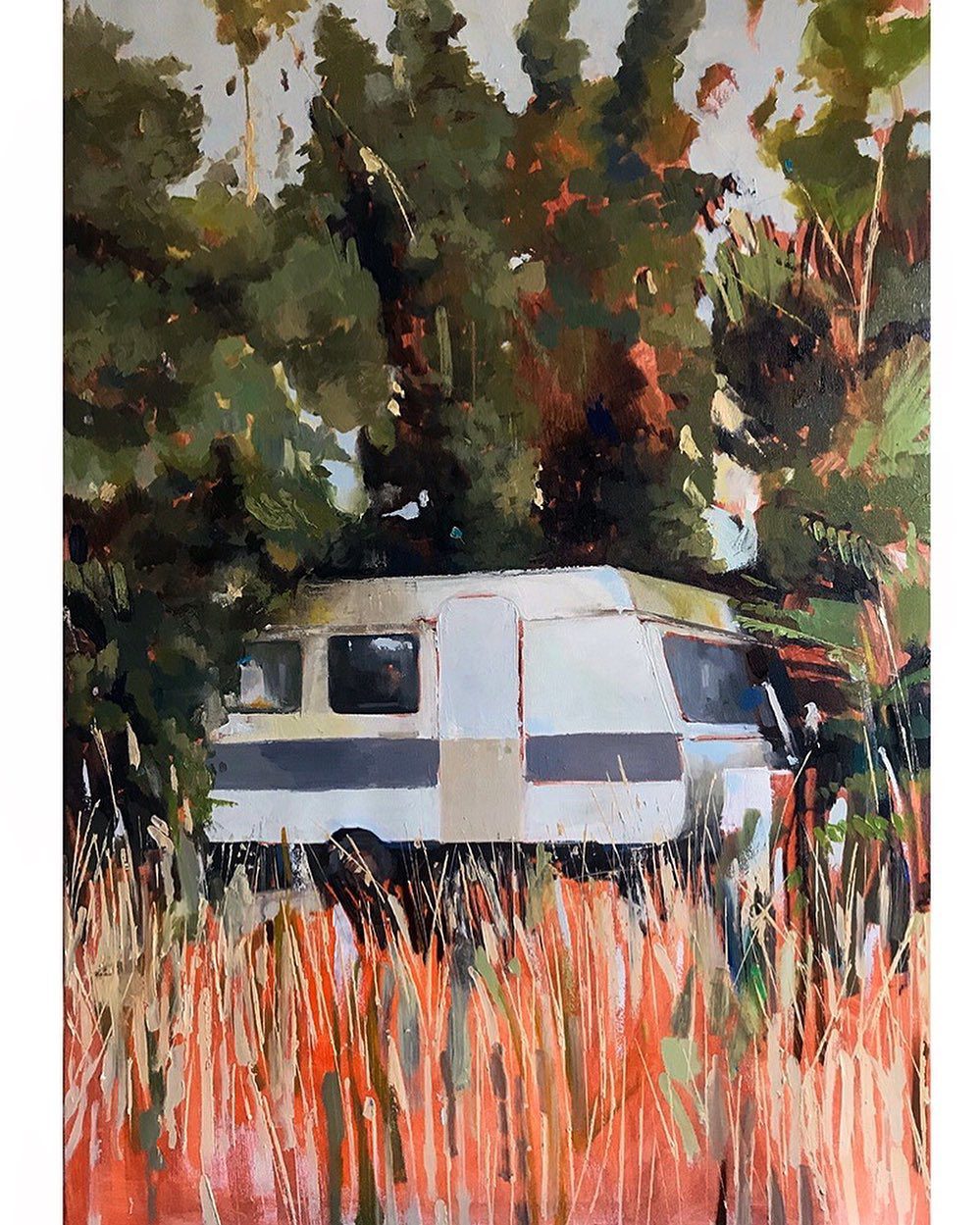From the Adriatic to the Black Sea, we take a look at the work of several young artists who are stirring up the contemporary scene and most importantly, they promise to continue doing so in the coming years from the other side of the European continent. Evgen Čopi Gorišek from Slovenia, Alba Miočev in Croatia, Maja Djordjevic and Tony Star from Serbia, Feros in Ukraine or Issue in Crimea are some of the artists we have put on our radar. Each one of them come with their own identity, most of them with their beginnings marked by the streets and the graffiti scene, others on a more classic and traditional line of studio work and all of them deciphering the codes of the Y Generation. They are young, they come strong, with plenty of preparation and willing to take over from previous generations, with the forgiveness of Etam Cru, Marat Morik or Aec and Waone Intereznikazki. Many of them do not surpass the thirties, they were born and raised in the middle of the Balkan conflict and their work has come today to break down prejudices through an agile, fresh and irreverent language. Above all: they overflow energy. Don’t lose track of them, this can only go further.
- {“subsource”:”done_button”,”uid”:”02FDA713-87B9-4799-84E3-143922026849_1587300840668″,”source”:”other”,”origin”:”gallery”,”source_sid”:”02FDA713-87B9-4799-84E3-143922026849_1587300840691″}
Evgen Čopi Gorišek (Koper, Eslovenia, 1994)
At the age of 17, after seeing Banksy’s documentary Exit Through The Gift Shop for the first time, he bought a black spray can, created his first stencil and went out on the street. Thus began Evgen Čopi Gorišek’s addiction to aerosol. «But I soon got bored of stencils. I’ve always admired free style painting so I started doing letters. Again they became repetitive to me, so I decided to start looking for big abandoned buildings so I could practice human figures and heads. I would spend the whole day on the streets of Koper painting with my friends», says Čopi Gorišek.
Now, he focuses on his studio work from Berlin, where he has been living and working for a year now, and where he has reached an unmistakable style. His figurative paintings are torn between graffiti and a naive expression reminiscent of the drawings we painted as children, where the human figure is almost always the protagonist with a blurred expression that he achieves since he discovered the airbrush. «In the street I used to paint with spray paint and roller and I used to paint these human figures in a more abstract way until I bought an airbrush to give it a more realistic style. Painting with this tool on canvas allows me to make more details and I started to experiment with all the options this could give me», continues the Slovenian artist. This is how he arrived at his characteristic faces, which he paints using two points for the eyes and a large U for the mouth. «I do the classic ‘smiley face’. I started to work more on the body of the figure, on its skin, and tried to perfection it and make it more real while keeping the face simple. I have ended up finding that contrast and balance between this carelessness about perspective or other aspects of the work and the fine rendition of parts like human skin», he says of his paintings. His local art recommendation? «My mentor and good friend whom I admire and respect, Slovenian artist Leon Zuodar, known as LELE».
Today, at his 27, you will hear Evgen’s name in some of the leading Contemporary Art galleries. This October 30th he will inaugurate his first solo show at PlanX Gallery in Milan and is now working on two projects that are about to land: Untitled Art Fair during Miami’s Art Basel week , which due to global conditions this year will have to go virtual, and his first solo show across the ocean at PADRE gallery in New York next January 2021.
Maja Djordjevic (Belgrado, Serbia, 1990)
Her works are a clear statement of the millennial generation. With a work in oil and enamel, which could seem digital if it were not for the texture and vividness of the piece itself, the Serbian artist Maja Djordjevic takes us from the ‘now’ to a return to the 90’s through the Windows interface imaginary with which she plays using pixels, Paint windows or the classic solitaire card game, connecting with a whole generation of today’s thirty-year-olds. Pixels from arcade games like Sega, Paint, Pac Man or Space Invader, which paints without the help of tapes and using the pulse of her hand.
In this similar naive, almost infantile aesthetic, where painting a human body with four lines and a circle, she takes it into a personal game where she introduces nudity and that “prohibited” feeling that represented to paint it when we were 9. Women who sometimes represent her and others to daily situations that occur around her and that with an overflowing irony she moves away from conventionalisms.
Since 2013 she has been actively exhibiting in her native country and the rest of Europe, and now she has half of the world at her feet. In the past few years she has exposed her work at the Greek gallery Dio Horia, The Hole NYC, U10 and has participated in the ‘Balkan Project’ in Los Angeles. One of her last collective exhibitions was curated by the design studio Case Studyo at the Belgian gallery PLUS-ONE, together with artists such as Jean Jullien or Ryan Travis Christian. On December 10th, she will open “This Must Be The Place”, her last solo show at the London gallery Carl Kostyal.
Issue (Simferopol, Crimea, 1990)
Like many other artists he began his artistic journey rooted in classic graffiti. It was in 2004 when he made his first illegal piece, which later led him to go train bombing for a long time. «That’s when I started paying attention to style writing and work on the type. I started working with the letters and gradually moved away from traditional graffiti to experiment with abstract – geometric plots», says Issue, the name he uses to sign in the streets.
It was through his interest in the legacy of the Soviet avant-garde of the early 20th century and the design trends of the Bauhaus that began his passion for typography. «Now I am very inspired by research and trends in contemporary visual art, graphic design and experimental typography. These incredible times of new technologies and the side effects of the immense flows of information and visual garbage that we consume make us adapt our way of perceiving the world around us in a way that is too fast and qualitatively simple», considers Issue. These processes and visual connections create images in him that he transforms into his works, giving space to improvisation during the process, and which sometimes depend on the properties of the surface on which he works, leading to unexpected solutions: «I create my own visual language as a form of communication, I work with simple forms creating more complex compositions and I contrast color schemes, that’s what I do!», he adds.
The Crimean artist, who now lives and works in Moscow, has just painted his first large-scale wall in the Russian city of Neftekamsk and for the cold times ahead he plans to focus on his studio work. Don’t miss the artists, also from Eastern Europe, that he recommend us: «Retro and Biggie_K for their technical style as well as innovative in graffiti, Soc.i.a for their approach and fresh vision, Khodak Nikita and Dyoma have a very interesting combination of aesthetics between figurative and digital in their murals,” concludes Issue.
Tony Star (Novi Sad, Serbia, 1987)
He is 33 years old and the oldest of this selection of artists. Stefan Stanojevic, his real name, or better known as Tony Star is an artist and designer, and comes like many of them from that generation of artists that have spent their adolescence painting trains, subway cars and bombing the city with their names. In fact, he started doing it when he was only 14 years old. Today he continues to paint murals around his hometown, where he lives and works, which you will recognize by his glossy, porcelain style. «As a youngster I was attracted to marbles, and reflective and shinny surfaces probably as most of the people. Later on, when I started to paint walls, I painted a few porcelain figures in combination with my style at the time, but I didn’t feel fulfillment to paint objects of other artists, or just to translate someone else photo of object, so I drop this idea. I realized needed control over every aspect of my work” says Star. It was while studying her design career that she began to learn some 3D software techniques that opened her own path to the 360º creation of her work. He found a new way of working. From then on, he did not only do mural or digital artwork, but it led him to the creation of ceramics, « It was kind of logical step but once I started, it opened a whole new world for exploration. It’s fun and I’m also happy to have found a narrative channel for my work,” he adds.
He is already a well-known name on the local Serbian scene and is now working on his next mural with the duo, also Serbian, of the Sobekcis twins. He is also preparing his next show which will probably open the first months of next year. More names to follow from the Serbian scene: “Besides the Sobekcis brothers, I like the work of the urban artists SuperTimor and Sensi». Don’t lose track of any of them.
Feros (Drohobych, Ucrania, 1992)
Serhii Greh or Feros, grew up in a small western Ukrainian town and from the beginning has been strongly influenced by the first wave of European muralists, as well as the work of his friends and professional colleagues Keno and Dilk Juliette, with whom he rode the Kickit Crew. They each have their own personal style, yet they function as one when fused together under one wall. It was in 2007 when he made his first forays into the world of graffiti and in 2013 Feros was already signing his first big murals and traveling through urban art festivals.
«Now I’m mainly developing my studio work, working on canvas and also graphic pieces, increasingly away from graffiti», says Serhii. «Some of the top artists who have inspired me I would say are Waone and Aec Interenikazki, Pavlo Makov or Arsen Savadov, I find it hard to have a favorite», he adds.
The letters that he has been drawing on the streets for years have evolved by deforming and joining together, giving rise to figurative elements such as characters from his imagination, animals or plants that are interspersed with abstract elements. In the same way, Feros takes this work done in the street to his studio through acrylics on canvas, where he sometimes transforms his pieces into pure abstraction.
«I am now actively working in my studio preparing my next exhibition which will be based on figurative work of the conspiracy theory. At the moment I’m curating the project “Equilibrium”, with twelve artists creating work in public space at Lviv Street Gallery in the Ukrainian city of the same name», says Feros.
Alba Miočev (Zadar, Croacia, 1994)
«I’ve been drawing and painting for as long as I can remember. I was fascinated by murals and street art from a young age, it felt so unbelievable to me that someone could be able to make a painting on such a big surface. Also the fact of reaching a big audience without walking into an art gallery was something that got me», says Alba, «Our eyes and minds got used to seeing billboard ads and big screens in public spaces all the time, images everywhere. Seeing a big mural will always keep that fresh inspiring feeling». Her classical approach to painting allows her to play with oil paint through landscapes and personal pictures, and since she wasn’t very familiarized with graffiti, she started painting walls using strictly brushes, with the same personal style she had on canvas. Painting is the same act for her as writing her personal diary, sometimes melancholic sometimes just life. «I used to be very influenced by digital artists, cartoonists and anything I would see on a screen but lately it’s nature itself my inspiration», she adds. «I love the work of the illustrator, muralist and painter Apolonija Lučić, I used to share studio with her and I love her calm approach to creation». Alba is currently showing her latest works in Zagreb at Galerija Matice Hrvatske.

